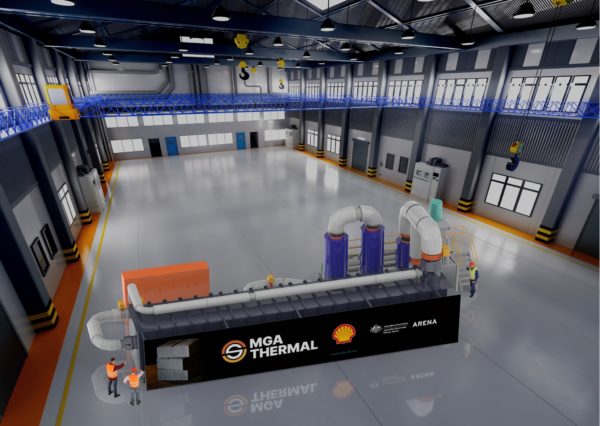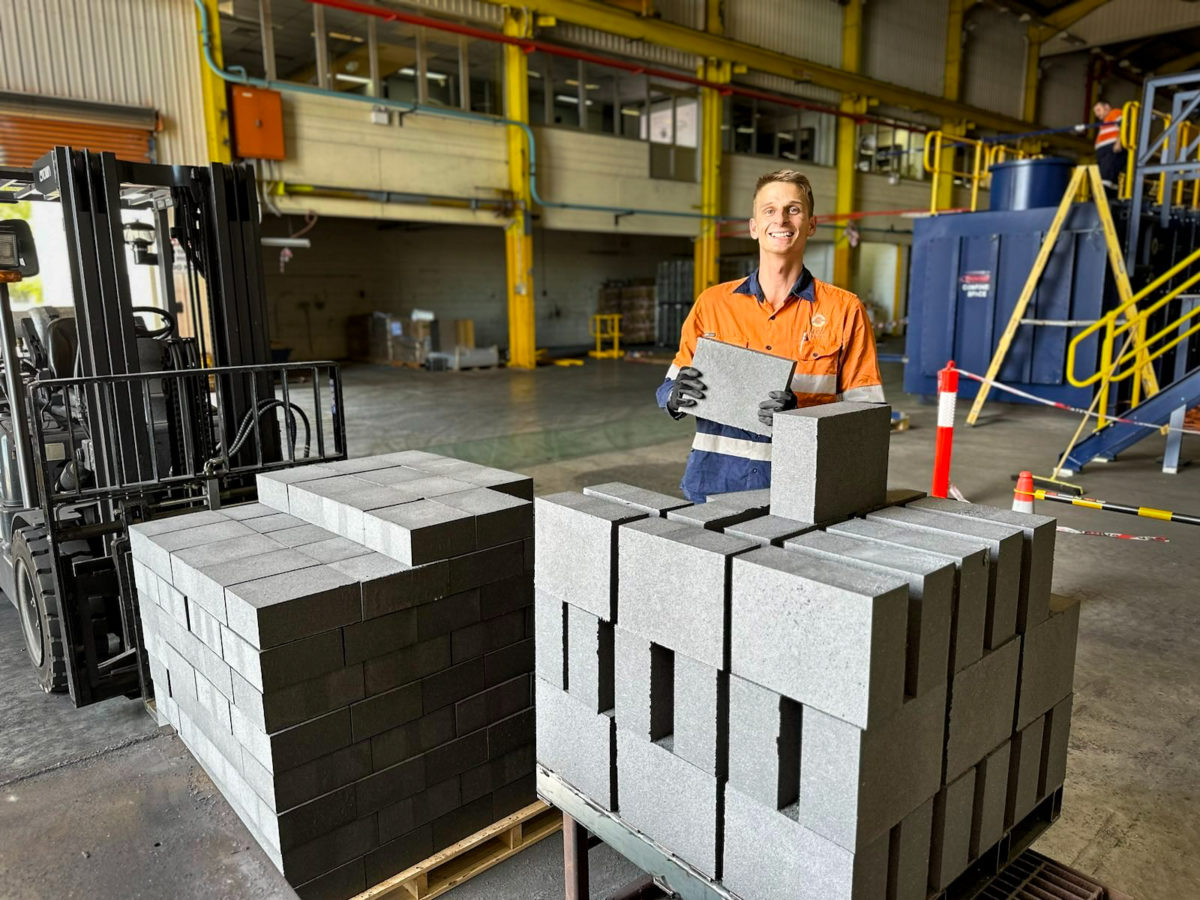Global energy major Shell has committed approximately $580,000 (USD 400,000) to MGA Thermal to help finance the construction of a 5 MWh thermal energy storage pilot project that will seek to showcase the potential of the New South Wales (NSW) company’s technology to store large amounts of energy as heat over long periods.
The company is commercialising a “miscibility gap alloy” approach to thermal energy storage, storing heat in blocks made largely from aluminium and graphite and dispatching it to generate electricity.
MGA’s patented thermal energy storage blocks, about the size of a large house brick, consist of small alloy particles embedded within graphite-based blocks enclosed in a fully insulated system. Once heated the alloy particles can store heat for days with minimal energy loss. Heat exchangers are used a transfer gas to absorb heat from the blocks, with the heated gas or fluid suitable for industrial heat applications or to drive a steam turbine to generate electricity.
The technology has the potential to be a cost-effective, medium-duration storage technology due to its high energy density, low energy degradation, modular design and low cost.
Shell’s money, provided through its “GameChanger” seed funding division, will assist with the creation of the demonstration plant being built at MGA’s new commercial manufacturing facility at Tomago, near Newcastle, in the NSW Hunter region.

Image: MGA Thermal
The pilot unit will measure about 12m x 3m x 4m and be fitted with approximately 3,700 MGA blocks. The unit has a planned storage capacity of 5 MWh, with charging and discharging at up to 500 kW for 10 hours.
MGA Chief Operating Officer Mark Croudace said the project, which is expected to come online in 2023, will produce valuable performance data and “provide a tangible demonstration of the technology for prospective industrial and power customers.”
“Our technology is attractive for those looking to decarbonise, with a high potential impact in the medium- to long-duration energy storage sector,” he said.
“Shell’s funding, in conjunction with ARENA [Australian Renewable Energy Agency], allows us to accelerate our pilot, going live in 2023, gather additional data about our technology, and continue our rapid growth into commercial industrial and power markets.”
Data gathered will cover the charging and discharging behaviour, fluid dynamics and temperature distributions, and validate the efficacy of the MGA technology under a variety of end-use case simulations, including providing dispatchable power, process heat, and green hydrogen production.
Shell GameChanger representative Matt McDonald said MGA had been selected from a pool of dozens of quality applicants who responded to a call for long-duration energy storage solutions.
“We look forward to seeing their progress and to continue lending Shell support and expertise,” he said.
Shell is just the latest to back MGA’s technology with the Australian Renewable Energy Agency providing $1.27 million to help finance the pilot unit.
Australia’s largest electricity generator AGL Energy has also shown an interest, linking with MGA to investigate the technical and financial feasibility of using thermal batteries to provide the steam for a 200 MW turbine at the Torrens Island Power Plant in South Australia.
This content is protected by copyright and may not be reused. If you want to cooperate with us and would like to reuse some of our content, please contact: editors@pv-magazine.com.









By submitting this form you agree to pv magazine using your data for the purposes of publishing your comment.
Your personal data will only be disclosed or otherwise transmitted to third parties for the purposes of spam filtering or if this is necessary for technical maintenance of the website. Any other transfer to third parties will not take place unless this is justified on the basis of applicable data protection regulations or if pv magazine is legally obliged to do so.
You may revoke this consent at any time with effect for the future, in which case your personal data will be deleted immediately. Otherwise, your data will be deleted if pv magazine has processed your request or the purpose of data storage is fulfilled.
Further information on data privacy can be found in our Data Protection Policy.